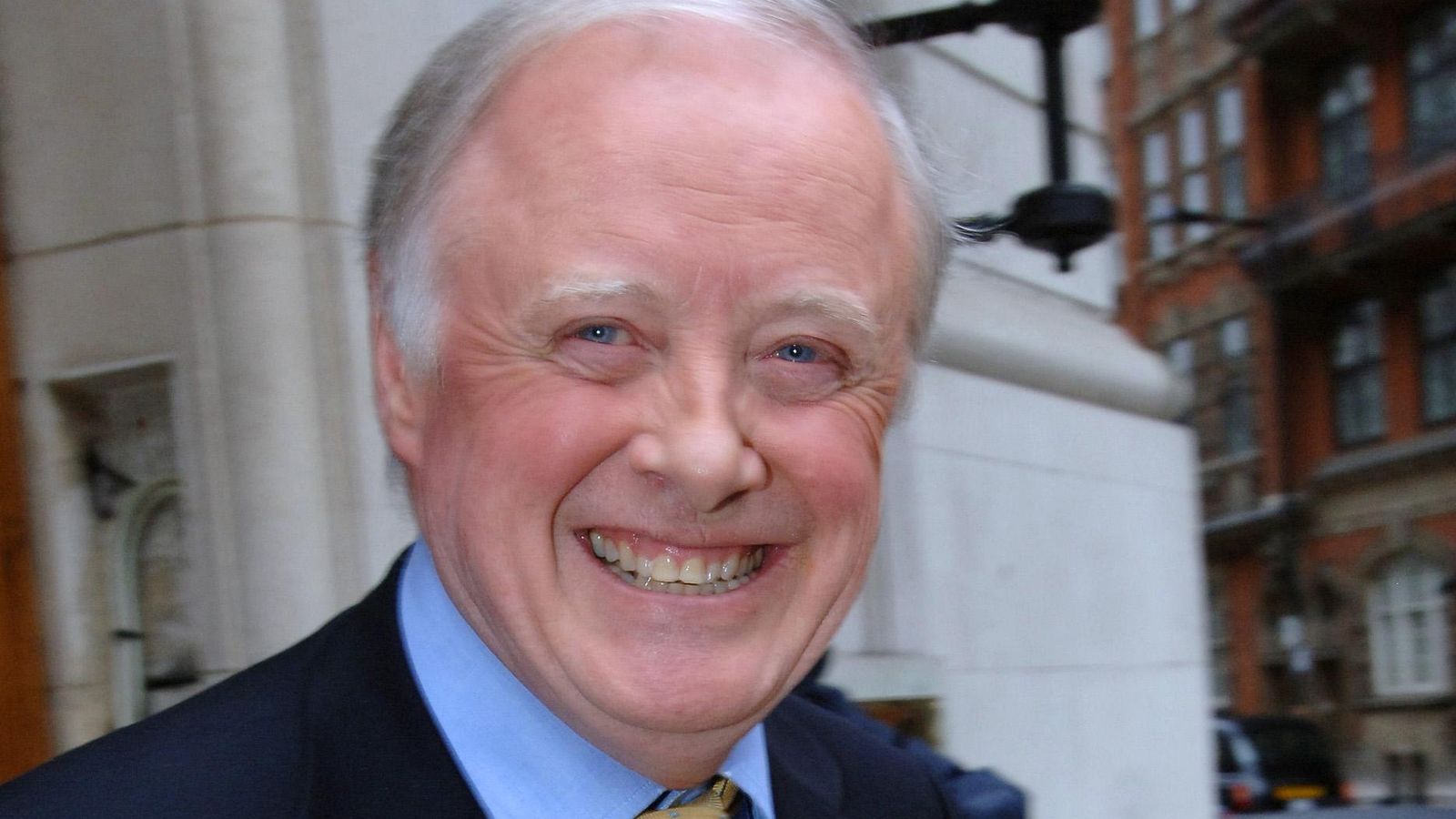They don’t make them like Gerry Robinson any more.
These days, chief executives are expected to talk earnestly about their environmental, social and governance policies, sip mineral water at lunchtime and list participating in triathlons among their hobbies and pastimes.
Sir Gerry, who died on Thursday at the age of 72, was a was a larger-than-life character who spoke his mind, liked a drink and did not mind using the odd Anglo-Saxon epithet.
None of that, however, was why he stood out as one of the outstanding chief executives of his age.
Beneath the twinkly-eyed Irish bonhomie lurked a razor-sharp intellect and a shrewd accounting brain that, somewhat unfairly, led one commentator to describe him as a “shark in a Val Doonican pullover”.
His was also a spectacular and inspiring rags-to-riches story.
The ninth of ten children, he was a carpenter’s son, born in Dunfanaghy, a fishing village in Donegal in the far north-west of Ireland.
Supply chain crisis: Haulage firms ‘horrified’ at plans to relax rules on overseas HGV drivers
Screeching U-turn over haulier rules ‘not going to make a massive difference’
British Gas owner says energy bosses should face ‘fit and proper’ test as consumers face £2bn crisis bill
The family emigrated to London when he was 11 and, to please his mother, as he put it, he joined a seminary in Cumbria in order to train as a priest.
But as he recalled to the Sunday Times in 2007: “Any vocation I had was lost, I think, to a girl called Mary Williams.”
He left school at 16 and joined the toy-maker Lesney, owner of the Matchbox brand, as a clerk.
He ended up becoming the firm’s chief management accountant before joining the motor dealer and car leasing firm Lex.
There, he was talent-spotted by Eric Walters, a man later to become a fixture in Britain’s boardrooms.
In 1980, he went with his mentor to Grand Metropolitan, a conglomerate whose activities spanned hotels, brewing, tobacco, bingo, restaurants and spirits.
His big break came when he joined Grand Met’s contract-catering division and in 1987, led a management buy-out of the business, mortgaging himself to do so.
That paid off when, four years later, he led a stock market flotation of the business, which went on to become Compass, the world’s biggest contract catering company.
It netted him £20m – and he was still only 43 at the time.
He was then headhunted to run Granada, another conglomerate, whose activities at the time included motorway services, TV rentals, nightclubs and running the ITV franchise in north-west England that made Coronation Street.
It was a business in danger of being taken over and ripe for cost-cutting.
Sir Gerry duly embarked on a heavy retrenchment of the business which attracted headlines when he fired David Plowright, the chairman of Granada TV.
His dismissal sparked an angry letter to The Guardian from more than 100 leading writers, directors and producers, including Alan Bennett, Alan Bleasdale, Harold Pinter and John Cleese, who followed this up with an infamous fax to Sir Gerry: “Dear Gerry Robinson, F*** off out of it, you ignorant upstart caterer. Best wishes, John Cleese.”
Sir Gerry’s response was that “I’m obviously a bigger fan of his than he is of me” and subsequently took the actor out to lunch.
In 1994, Granada bought another ITV franchisee, London Weekend Television, for £770m following a fiercely-fought takeover battle.
This was the precursor, the following year, for the most dramatic move of Sir Gerry’s career: a hostile takeover bid for Forte, the hotels and restaurants empire.
It was one of the most fiercely-fought takeover battles the City has seen before or since, with the two camps even duking it out on Christmas Day, sending out press releases rubbishing the other.
In early 1996 with the support of Forte’s biggest shareholder, Mercury Asset Management – headed by the tough Carole Galley, nicknamed ‘The Ice Maiden’ in the City – Granada won with a £3.9bn offer.
Debate still rages as to whether the deal created value for Granada shareholders.
Granada subsequently hived off its catering and motorway services business, which merged with Compass, while Granada itself ended up merging with rival ITV franchisee Carlton to form what is now ITV.
Another part of the business, the TV rentals arm, was merged with its great rival Radio Rentals.
Sir Rocco Forte, Forte’s chief executive at the time, subsequently disparaged Sir Gerry in an interview in 2005 with the Sunday Times: “Who cares two hoots about Gerry Robinson? What’s he done? What’s he left behind? Nothing.”
By then, Sir Gerry had become a member of the great and good, accepting an offer from Tony Blair to become head of Arts Council England and a knighthood.
He also served as chairman of the drinks giant Allied Domecq, of ITN and, for a time, of BskyB, the then parent company of Sky News.
Sir Gerry had also returned to Donegal, where he bought a 100-acre estate and from where in 2005 he launched an unsuccessful attempt to install himself as head of the services group Rentokil Initial, only to be rebuffed by the City.
He also made a string of TV series for the BBC including a revival of Troubleshooter, which had originally been presented by Sir John Harvey-Jones, the former ICI chief executive.
Other series included Can Gerry Robinson Fix the NHS?, Gerry Robinson’s Car Crash and Can’t Take It With You, which helped people how to write wills.
Sir Gerry’s passing is a reminder of times when City takeover battles made headlines in a way they seldom do today and when chief executives were positively encouraged to present themselves as big personalities, rather than the more self-effacing, modest characters their advisors seek to portray them as these days.
He was also unafraid, on one occasion, even to tacitly admit to one of the criticisms made during the takeover bid by Sir Rocco – that he was simply trying to buy the latter’s business for the sake of expansion.
One of Sir Gerry’s former advisers recalled today: “When asked for a sound-check for a video just after the Forte deal, back in the days when broadcasters didn’t leak your out-takes, he said ‘We just bought all these hotels – and we have no f***ing idea what we’re going to do with them!’
“And then he broke into gales of laughter. He was a very funny man.”






















